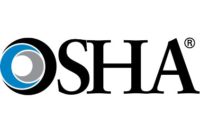Temp worker injury reveals multiple violations
Company didn't call 911

An investigation by OSHA found a Dudley, Massachusetts contract packager failed to inform the agency as required that a temporary worker needed hospitalization after he sustained a serious injury on May 26, 2016. Even worse, the employer failed to contact emergency medical services immediately when the injury occurred.
Arm inflated by a propellant gas
The temporary worker at Shield Packaging Co. Inc. - which fills, packages and ships aerosol containers - was on a production line where a gas head injects chemicals into aerosol cans. The employee, who had not received sufficient training, was cleaning a gas head when the production line activated unexpectedly. The gas head needle pierced his finger and injected him with a propellant gas which inflated his arm.
Company did not call 911
Company managers did not call 911 or other emergency services personnel. The injured employee did call 911 but was taken in a private vehicle to a hospital for medical treatment before emergency services arrived. The man was hospitalized. OSHA requires employers to notify the agency within 24 hours whenever an employee is hospitalized.
"This delay in contacting and securing professional medical help exposed this worker and other employees to additional bodily harm or potential permanent and disabling injuries. At a minimum, Shield Packaging and other employers must have systems in place to ensure that 911 is called immediately after an employee suffers an injury that requires medical care to reduce the delay in receiving professional medical treatment," said Mary Hoye, OSHA's area director for central and western Massachusetts.
Inspection expanded to temp agencies
OSHA's Springfield Area Office subsequently learned of the incident through a complaint and began an inspection on June 6, 2016, at Shield Packaging. Soon after, inspectors expanded their investigation to include two temporary staffing agencies which supply about 86 of the 140 workers at Shield Packaging: ASI Staffing of Leominster and Southern Mass Staffing of Worcester.
The agency's inspection identified several new and recurring hazards at the plant that exposed workers to lacerations, amputation, hearing loss, hazardous chemicals, crushing and struck-by injuries and being unable to exit the plant safely in the event of an emergency.
Specifically, Shield Packaging also failed to:
- Properly guard aerosol can crimping machinery against employee contact.
- Provide proper hearing protection and training to employees exposed to high noise levels.
- Provide employees with and ensure the use of face shields, gloves and other protective equipment.
- Ensure that designated exit routes did not pass through high hazard areas.
- Develop and utilize procedures to prevent the unintended startup of machinery during maintenance and train employees about those procedures.
- Prevent the operation and use of defective powered industrial trucks.
- Provide employees with information and training about the hazardous chemicals in their workplace.
As a result of these hazards, OSHA has cited Shield Packaging for 17 serious, repeat and other than serious violations of workplace health and safety standards. Proposed penalties total $295,967. The repeat citations involve hazards similar to those cited during an OSHA inspection of the plant in 2013.
In addition, OSHA cited:
- ASI Staffing for two serious violations for not providing required training to employees exposed to high noise levels and not providing effective training to employees about the hazardous chemicals in their work areas. Proposed penalties total $24,942.
- Southern Mass Staffing Inc. for two serious violations for not providing employees with hazardous energy control training and effective training about the hazardous chemicals in their work areas. Its proposed penalties total $17,460.
"Using temporary workers from staffing agencies does not exempt a host employer from its responsibility to comply with OSHA requirements. Nor are the staffing agencies exempt. Staffing agencies and host employers are jointly responsible for maintaining a safe work environment for temporary workers," said Hoye. "Employers must not use temporary workers as a way to avoid meeting all their compliance obligations under the Occupational Safety and Health Act and other worker protection laws."
Looking for a reprint of this article?
From high-res PDFs to custom plaques, order your copy today!





